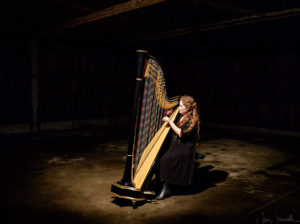Offering Out
I was once interviewed by author Linda Seger for her book Spiritual Steps on the Path to Success. Her question for me was whether playing music for people is anything like the Quaker practise of “centering in”. This was my answer:
When I write or play music, I move from inward to outward – from something felt in my mind, spirit, muscles, imagination to something that finds existence and purpose in someone else’s listening ear.
So, instead of ‘centering in’, I am engaged in ‘offering out’. Offering out is frequently scary. In live performance of my own original music, I am aware of again offering my hard-won creations in real time to real people who are distractible and complicated: an audience member shuffles, coughs or looks at the program – what does that mean?
It means that, once again, I find myself standing in front of strangers (or worse, respected colleagues) and I choose to open my trembling hands and offer to them what I have made. The best occasions – when someone is intensely moved or enriched by my music and shows it – more than make up for the inevitable worst occasions of distraction and indifference.
I once premiered a whole program of difficult new music by composition students at a Conservatorium, with little time to prepare. One of the composers was so struck by the peace that surrounded me as I played that he asked me afterwards how I’d achieved it.
I said simply, “I pray.”
“You pray?” he repeated, incredulously. His next words came out with intense embarrassment and surprise. “What — to God?”
My answer meant that I pray before (and sometimes during!) a performance, but thinking back on it, I would now say that my time spent as a pray-er is the foremost thing that equips me to be a player of peacefulness.
Playing music, ‘offering out’ an art that is temperamental, haphazard, and subject to a thousand influences – from the heat of the room to the pattern of the carpet to the dinner you missed to the child in the front row whose legs swing blithely on all the wrong beats – can really unnerve you. Praying and listening to God gives me a reservoir of peace and trust as well as a humbling sense of perspective on my own successes and failures.
So I try to keep my focus upward and from that ‘offer out’. The most fatal thing to me when I play is to go inward on myself. If I become suddenly aware of my dress pinching me or marvel at the fact that my fingers seem to recall the notes faster than my brain does or wonder how I look when I sing that high note, then the game is up. It’s like breaking an enchantment; like Orpheus looking back towards the Underworld and losing Eurydice.
Instead, I think of the person whose story I am singing, or the climax of emotion that I want to reach in this piece, or I focus on drawing in that one person sitting in the front row who isn’t listening.
I think it is false to have this idea that an artist is self-absorbed, isolated, selfish, focused on himself. The true artist should be giving, offering out, throwing his energy into others in the most vulnerable and generous way.
When I play best, my skill is exerted unconditionally outward, towards the people or images whose stories I tell and towards the people to whom I tell them, and, ultimately, to God.
